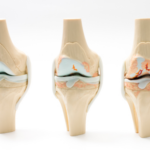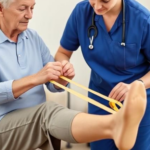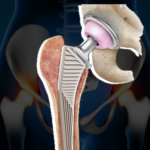
Orthopedic problems can be both painful and debilitating, often impacting your quality of life. Whether it’s a persistent ache in your knee or unexplained muscle weakness, recognizing the signs that you should see an orthopedic specialist is crucial. In this article, we’ll explore eight warning signs that you shouldn’t disregard when it comes to your musculoskeletal health.
The Role of an Orthopedic Specialist
Before delving into the warning signs, it’s essential to understand the role of an orthopedic specialist. These medical professionals are experts in diagnosing and treating conditions related to the musculoskeletal system, which includes bones, joints, muscles, ligaments, and tendons. They have the knowledge and experience to provide specialized care for a wide range of orthopedic issues.
Warning Sign 1: Persistent Joint Pain
One of the most common reasons to consult an orthopedic specialist is persistent joint pain. If you experience ongoing discomfort in your joints, it’s a clear indication that something might be amiss. Orthopedic specialists can identify the underlying causes of your joint pain and recommend appropriate treatment options.
Warning Sign 2: Reduced Range of Motion
A noticeable reduction in your range of motion is another sign that should not be ignored. If you find it challenging to perform daily activities or your joints feel stiff and inflexible, consulting an orthopedic specialist is a wise decision.
Warning Sign 3: Chronic Back Pain
Chronic back pain is a prevalent issue that can significantly affect your life. If your back pain persists for weeks or months, it’s essential to seek professional advice. Orthopedic specialists can diagnose the source of your pain and develop a treatment plan tailored to your needs.
Warning Sign 4: Frequent Joint Swelling
Swelling in the joints is often indicative of an underlying problem. It could be due to conditions like arthritis, bursitis, or ligament injuries. An orthopedic specialist can help determine the cause of the swelling and recommend the appropriate treatment.
Warning Sign 5: Difficulty in Daily Activities
When your orthopedic health affects your ability to perform everyday tasks, such as walking, climbing stairs, or reaching for objects, it’s a red flag. Orthopedic specialists can assess your condition and provide solutions to improve your quality of life.
Warning Sign 6: Unexplained Muscle Weakness
Muscle weakness that can’t be attributed to other factors, such as intense physical activity, requires attention. Orthopedic specialists can identify the causes of unexplained muscle weakness and design a treatment plan to help you regain strength.
Warning Sign 7: Numbness and Tingling
Numbness and tingling sensations, especially in the extremities, may indicate nerve compression or other orthopedic issues. Seeking prompt orthopedic care can prevent the condition from worsening.
Warning Sign 8: Failed Previous Treatments
If you’ve tried conservative treatments for an orthopedic issue, such as physical therapy or medication, and haven’t experienced significant improvement, it’s time to consult an orthopedic specialist. They can explore alternative treatment options and potentially offer surgical solutions if necessary.
Importance of Timely Orthopedic Consultation
Timely consultation with an orthopedic specialist can prevent your condition from worsening. Delaying treatment may lead to more extensive and complex interventions in the future. It’s crucial to address orthopedic issues early to achieve the best possible outcomes.
Diagnosis and Treatment Options
After you’ve recognized one or more of these warning signs, an orthopedic specialist will perform a thorough evaluation. This assessment may include physical examinations, imaging tests, and a detailed medical history review. Once the cause is identified, your specialist will discuss treatment options, which may include physical therapy, medication, injections, or surgery.
Summary
In conclusion, your musculoskeletal health is a crucial aspect of your overall well-being. Recognizing and acting upon these eight warning signs is vital in ensuring you receive the necessary care to maintain a high quality of life. Don’t disregard persistent joint pain, reduced range of motion, chronic back pain, joint swelling, difficulty in daily activities, unexplained muscle weakness, numbness, tingling, or failed previous treatments. Seek the expertise of an orthopedic specialist when needed to address these concerns promptly.




